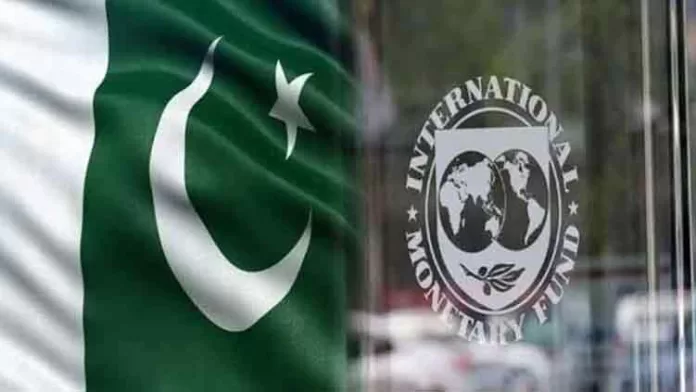The International Monetary Fund (IMF) recently criticised Pakistan’s most recent budget in a report, raising the possibility that the lender would withhold crucial funds until the bailout programme is finished at the end of June. The disapproval of the budget by IMF may lead Pakistan to default.
Bloomberg reports that this event may cause a significant dollar shortfall in the first part of the upcoming fiscal year, which may increase the risk of default, reduce GDP, and raise inflation and interest rates.
The IMF’s criticism of the budget is based on its view that it includes a tax amnesty and insufficiently addresses the need to widen the tax base. Pakistan now has $4 billion in reserves of foreign currency. The reserves will run out by the end of June, though, unless the anticipated IMF assistance materialises, as about $900 million in debt repayment is due this month.
Between July and December, the nation must repay an additional $4 billion that cannot be carried over. According to the “Pakistan Insight” assessment, default is quite likely given that anticipated reserves will be below $4 billion at the start of fiscal year 2024.
The alternatives for getting new external funding would be severely reduced in the absence of an IMF programme. According to the article, discussions over a fresh rescue deal with the IMF are not likely to start until after the elections in October. A new program’s actual aid delivery would not start until December, even if an agreement is achieved.
Also Read
Pakistan must prioritise dollar savings in the meantime by limiting import purchases and keeping a surplus in its current account balance in order to meet its obligations. The country will also require aid from friendly nations to avoid default in the first half of fiscal year 2024.
If the projected IMF funding is not received by the end of June, the research foresees dire economic consequences for Pakistan. The State Bank of Pakistan is anticipated to increase interest rates above the present level of 21% in order to further reduce the demand for imports and maintain foreign exchange reserves. Import restrictions will need to remain in place.
The base case for the research assumes that the State Bank of Pakistan would maintain its existing course of action through December, although that forecast is based on the supposition that IMF financing will be available by the end of June.
In comparison to present projections, fiscal year 2024’s inflation is projected to be greater due to ongoing import restrictions and a depreciating Pakistani rupee. It is anticipated that inflation would average approximately 22%, and that output will be further hampered and consumption will be reduced by higher borrowing costs and restrictions on importing raw supplies.
Additionally, the analysis predicts that Pakistan’s growth in the fiscal year 2024 will be substantially weaker than the present prediction of 2.5% if the anticipated IMF funding does not materialise this month.
Furthermore, the government would incur higher debt payment costs as a result of the higher interest rates brought on by the shortage in aid. The analysis suggests that the country’s economic problems will be made worse by the fact that debt servicing will account for over half of the budget for the fiscal year 2024.
With IMF assistance in jeopardy, Pakistan is at a turning point in its economic development. To avoid more issues and preserve future stability, prudent financial decisions, reliance on friendly nations, and strict economic measures will be crucial.





